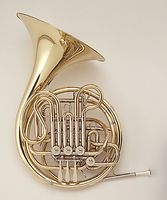Howto
Mouse over this card's header -- the green part with the name Edit some cards in it -- and you'll see a menu appear. (On some older browsers, it's always there). The first item in the menu, View, is the default tab; clicking it loads or reloads the view. Edit, the next tab, is for editing the card.
On Wagn.org we encourage users to edit boldly. Don't worry -- if something gets messed up, we can restore the old content using the third tab, Changes. Still, we know folks can be shy, so we set up a Sandbox where you can practice. You can click on the arrow to the right of the name to go to the Sandbox card, or just open it up and edit it directly below. Change it as much as you like.
Idea
Sandbox+issues
Sandbox+example
test
Sandbox+discussed in support tickets
Sandbox+relevant user stories
Not feeling the creative spark right now? Just try adding the content (Fuzzy) wuz here, and saving it. Easy, huh?
You'll notice that the Sandbox card has a rich text editor that lets you format text, like by making it bold or italics. That's the default on Wagn, but not all cards have that -- it depends on the card's type. Try editing the following plain text card:
These are the times that try your soul. ... And editing things like these are just plain boring, although useful
It has a much simpler edit box. Other types have very different editing interfaces. Try editing this image card for example:
There's not an edit box at all there - just an upload prompt.
Images and Plain Text are two examples of built-in cardtypes. Others include phrases, toggles, numbers, and HTML. Each of these types has a different edit interface.
Not all cardtypes are built-in -- users can create other cardtypes right through the interface. We'll talk about how to do that a little later, but right now let's look at an example of one of these user-built cardtypes. The following is an example of the Recipe cardtype.
scrambled eggs+tagsscrambled eggs+ingredients
3 eggs
dash of milk
2 cloves garlic, chopped/mashed
some onion, chopped
half a sausage (or "fake" sausage to be vegetarian), chopped
half a tomato, chopped
grated cheddar cheese
butter
Goes well with:
one or two slices of toast (of a gluten-free variety if that is desired)
jam (preferably strawberry or blueberry)
scrambled eggs+preparation
Mix the eggs and milk.
Heat an iron pan to medium-high, add a slab of butter, and once it's melted fry the onions and sausage.
When they're close to done, turn the pan down, wait another minute, and add the eggs, tomato and garlic. (And start the toaster.) Periodically scrape the eggs from the pan bottom/sides and generally mix things up so that nothing gets rigidly solid.
When the eggs are almost done, turn the heat off, add the cheese, and mix things up a bit more.
Pepper to taste, butter the toast, and mangia! Save quarter-to-half a silce of toast to put the jam on for dessert.
scrambled eggs+discussion
What do you see when you edit the scrambled eggs card? Lots of different cards nested inside, right? And you may also notice when you edit that several of those nested card have familiar card types. "+Serves" is a Number card, +ingredients is a RichText card, etc. So, in a way, the Recipe card type is built out of all those other card types. Before we get to exploring how all that works, just have a go at editing the scrambled eggs card. Try changing several parts of the card at once -- everybody scrambles eggs differently, right?
Once you've edited those four cards -- Sandbox, Sample Plain Text, Sample Image, and scrambled eggs, you're ready to add some links and new cards -- the next step in your quest to Become a Wagneer!
Tips
- You can double-click on most content (besides links) and an editor will pop-up for you.
- Try dragging on the lower right-hand corner of the rich-text editor to make the box bigger.
- Watch the status bar in the lower right corner to know when your work has been saved.
The Wagn Way
On many wikis, it wouldn't be {unusual *to* [see a](line:of words|that) ||looks} **something like this**. Those wikis use markup and structural syntax to convey information about formatting and structure. We want to be a little less intimidating.
We also emphasize breaking information into small, re-usable chunks. That makes it easier to edit only the information you want to edit (not having to hunt through the entire text after you click "edit") and to establish clear data patterns -- patterns are the basis of organization!
Not many wiki-like have the multi-edit function explored in the Sample Company example, and our model for combining the editors to make a rich form right through the wiki is, we believe, unique.
On to the next step:
Excellent. "syntax" itself is an intimidating term, which is sort of ironic in describing the user-friendliness of wagn... but I get it.
--Justin Lowell-Bellew.....Mon Nov 17 05:33:16 -0800 2008
good call. took it out.
--Ethan McCutchen.....Thu Nov 20 14:11:56 -0800 2008
Back to Become a Wagneer
